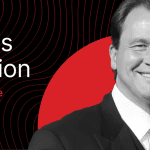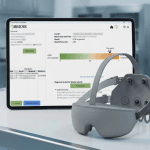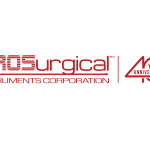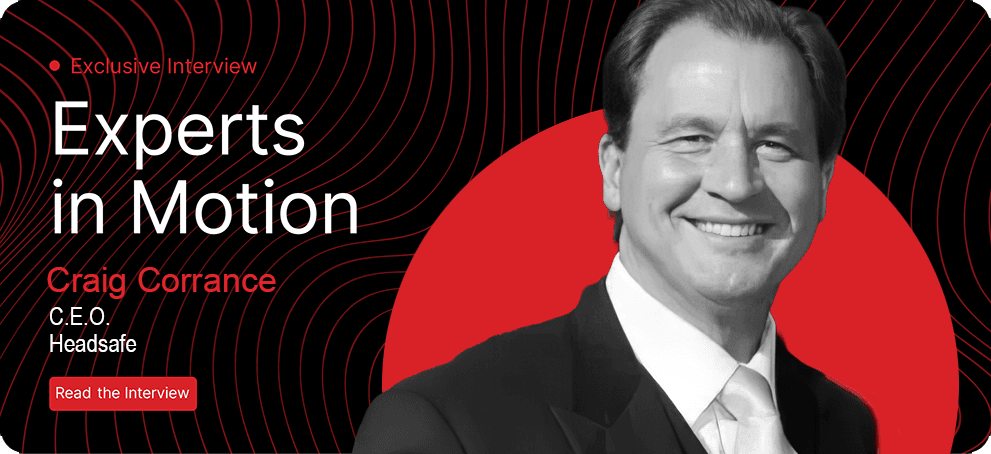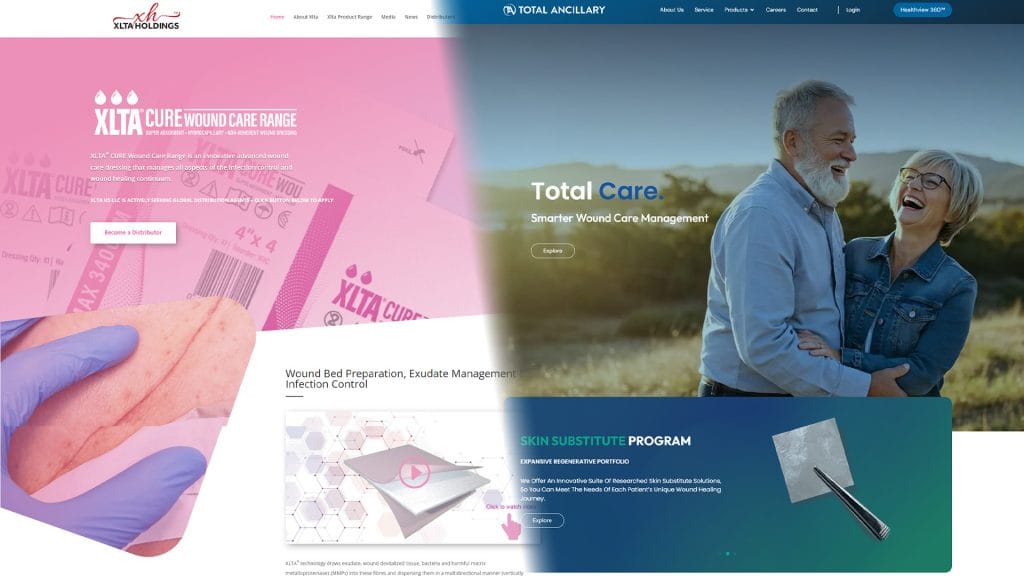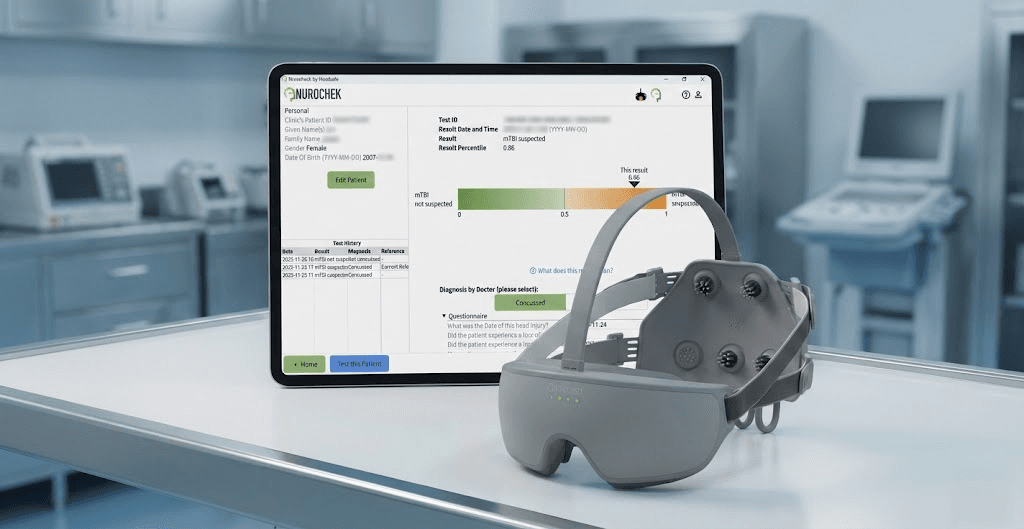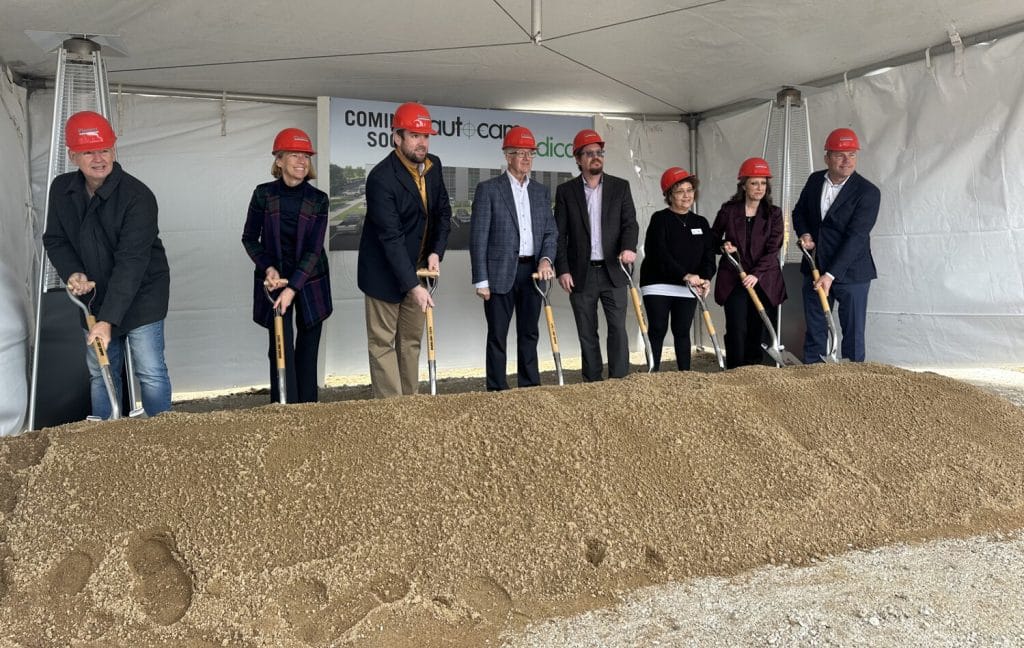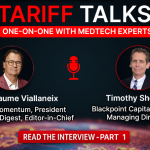Tariff Talks: One-on-One with Tim Sheehan, BlackPoint Capital Markets, Managing Director – Episode 1, Part 2
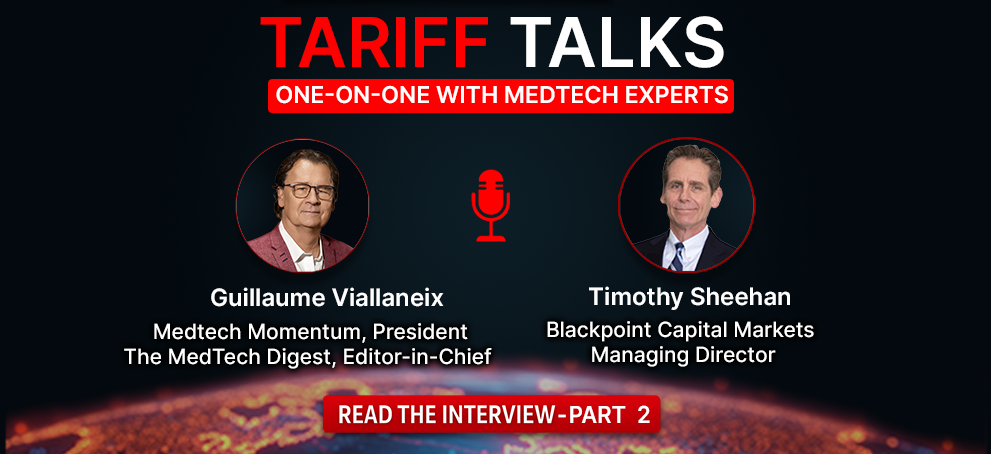

Episode 1: Tim Sheehan, Managing Director at BlackPoint Capital Markets
By Guillaume Viallaneix, President at MedTech Momentum and Editor-in-Chief of The MedTech Digest
As a co-founder of The MedTech Digest, I am particularly excited to launch “Tariff Talks,” a new interview series designed to help our MedTech community navigate these challenging times.
Before jumping in, I want to extend a huge thank you to Tim for joining us in this first-ever episode of Tariff Talks. Your willingness to share your expertise means the world to us.
Why did we create Tariff Talks? Well, it all started when we noticed a pattern – MedTech companies from both sides of the Atlantic kept reaching out to us since the beginning of the year, worried about what was happening in the U.S. with the new administration and how it might affect their business. They wanted guidance, insights, and most importantly, an educated path forward. We initially addressed some of these concerns in an article we published a couple of months ago, “Tariff Time Bomb: European and American MedTech Companies Can Act Now to Turn a Potential Crisis into Opportunity.”
But the situation is evolving at breakneck speed, evolving daily, and the ripple effects are touching everyone in our industry, including the U.S. and all over the world.
We’ve always believed that times of change, while challenging, create opportunities for those who are prepared. That’s when we decided to bring together some of the brightest minds in MedTech who are not only willing to share their insights but are genuinely passionate about helping others succeed. After all, success is a team sport, isn’t it?
For our inaugural episode, I had the pleasure of sitting down with a good friend of mine, Tim Sheehan, Managing Director of BlackPoint Capital Markets and Skyview Investment Advisors. Tim isn’t just another finance guy; he’s someone who has lived and breathed healthcare and life sciences for over 30 years. As co-leader of an investment firm managing roughly $10 billion in assets and running an investment bank that guides healthcare and medtech companies through capital raising and M&A, Tim brings a wealth of real-world experience to the table. What makes Tim particularly special to me is his experience working with everyone from startups to industry giants, making him the perfect person to kick off our series and help us understand what’s really happening in the world of MedTech today.
What follows is the first part of an engaging conversation I just had with Tim on April 8th, 2025, where we cut through the noise and get to the heart of what matters. Tim opens up about how tariffs and uncertainty are shaping capital flow, what this means for MedTech company valuations, and how businesses can adapt their strategies. He also shares some invaluable insights about the challenges facing early-stage companies looking for funding, and lessons we can learn from past economic disruptions.
Guillaume Viallaneix: The MedTech industry is facing strong headwinds with the U.S. tariffs and overall political uncertainty. From your perspective, Tim, how are these factors affecting the flow of capital into MedTech and the valuations or decisions companies are making?
Tim Sheehan: You hit the nail on the head, Guillaume. Uncertainty is exceptionally high right now, and investors, both financial and strategic, absolutely hate uncertainty. This tariff-driven turmoil has a chilling effect on capital flows. Investors don’t know what the rules of the game will be next quarter, so many are holding back on new investments or even moving money to the sidelines which both tend to depress valuations. For MedTech companies, that means it’s harder to raise money, and valuations are coming down.
Of course, when public markets wobble, private valuations take a hit as well. We’re seeing deal terms tighten and investors becoming more cautious across the board.
On the business side, tariffs themselves also add costs and complications, as you described in your last article about the “Tariff Time Bomb.” A lot of MedTech firms rely on global supply chains for components or manufacturing, so sudden changes in tariffs on imports and exports can inflate costs and force companies to rethink their plans. But as you know, changing your supply chain on a cleared device is complicated.
On the flip side, periods of turmoil often create unique opportunities for companies bold enough to stay visible and maintain their momentum precisely when competitors are forced to retreat. We see this all the time: while others hit pause, those who remain active and engaged with their audience can capture market share and build lasting relationships that will pay dividends long after the storm passes. So, look around your market and see where opportunities might lie.
Valuations being lower isn’t all bad if you’re an investor with capital to deploy; you might pick up promising assets at a relative discount. I’ve been in this business long enough to see many investors make their best investments during the worst of times. The key is having the confidence (and cash) to move quickly when others are hesitant. So yes, overall, it’s a challenging environment with a lot of wait-and-see, but bold players who can stomach the volatility may find some big upside in the chaos.
Guillaume Viallaneix: So, if you are a MedTech startup or an early-stage venture that needs funding, how would you navigate the current environment?
Tim Sheehan: Early-stage MedTech companies are already feeling the squeeze. When the public markets turn down or even flicker with uncertainty, venture capital, and private investors tend to pull back. What I’m seeing is many investors prioritizing the companies already in their portfolio, making sure those firms have enough cash to survive the crisis rather than eagerly funding brand-new deals.
In practice, that means if you’re a startup out pitching for a Series A or seed round, you’re likely facing more “no’s” and longer delays. You might have to settle for a lower valuation than you would have a year or two ago or accept tighter terms. It’s not that innovation is less exciting; it’s that investors are skittish and more risk-averse right now. But it will change!
My advice to founders is to minimize cash burn in the short term and focus on the absolute core milestones. If you can stretch your existing funding for 12 months instead of 6, do it. Many startups are raising bridge rounds from existing investors, essentially saying, “Help us stay afloat until the storm passes.” And many investors are indeed stepping up to do that for the companies they believe in. Concentrate on hitting key milestones that de-risk your story.
The good news, I always remind entrepreneurs, is that great companies get funded even in a downturn. If you have a medical technology that can save lives or significantly reduce healthcare costs, somebody out there is going to see the value in it. You just have to work harder and be more patient to find the right backers in times like these. Stay persistent, keep your existing supporters close, and weather the storm by being as lean and execution focused as possible. And yes, keep engaging the marketplace. I’ll never say it enough.
Guillaume Viallaneix: You’ve been in this industry for over three decades and have lived through multiple economic ups and downs – the dotcom bust in 2000, the 2008 financial crisis, Covid and 2020 and more. How does the current situation compare to those past disruptions? Are there historical lessons or analogies that medtech leaders should keep in mind now?
Tim Sheehan: That’s a great question. In the past crises you mentioned, there were clear underlying causes that we could understand and address. The early 2000s had the dot-com bubble bursting – too much capital chasing internet startups with no revenue. In 2008–2009 we had the subprime mortgage meltdown – a structural financial collapse. Even the COVID-19 shock, as sudden and terrible as it was, had an obvious trigger in a global pandemic.
In each case, once we identified the problem, we could start crafting a response, whether it was the Fed backstopping banks or companies adjusting their business models. This current situation with tariffs and trade uncertainty is different because it’s largely self-inflicted. It’s driven by policy choices more than an inherent economic flaw. In other words, this is a crisis of uncertainty created by one country’s political decisions. That makes it a unique challenge. It’s not a market bubble that popped or a virus we need to contain; it’s a policy stance that could change tomorrow… or not.
Guillaume Viallaneix: OK, given all these challenges and uncertainties, what should MedTech leaders and innovators focus on right now? What are the most important things for companies to do or not do to ride out this storm and come out stronger?
Tim Sheehan: In turbulent times, I always come back to controlling the controllables. For MedTech leaders, that means focusing on execution above all. You can’t control macroeconomic policies or geopolitics, but you can control how well you execute your business plan. Do not panic, be obsessively operational. If you have milestones to hit in R&D, hit them. If you promised a certain result to your investors or customers, deliver it. Execution is what builds credibility. Especially when investors are skittish, they will gravitate toward teams that consistently execute and do what they say they’ll do. So, tighten up your operations and show that, despite the external noise, you are making tangible progress. As an old saying goes, “Ideas are cheap – execution is everything.” That holds true even more now.
Remember, trust is a two-way street: if you cultivate trust now by being reliable, your investors are more likely to stick with you through rough patches, your team will stay motivated, and your customers will be engaged. In an environment where a lot of people feel uneasy, being a leader who engenders trust is a huge strategic advantage.
Guillaume Viallaneix: Thank you, Tim. Your insights are kicking off our “Tariff Talks” series with exactly the kind of practical wisdom we were hoping to share with our community. And this is just the first half of our eye-opening conversation – the second half will be landing in the next few days, packed with even more valuable perspectives on navigating these challenging times. Stay tuned!
Sign up for our monthly newsletter to get the latest insights in the MedTech space and never miss a Tariff Talks episode.
If you found value in this discussion with Tim, please share it with your network – the more we support each other, the stronger we all become.
We invite you all to come back for the second half of this insightful conversation. Trust us – you won’t want to miss what Tim has to share next!


